Grand Openings!
Thursday, February 19, 2026
After a winter of chasing around trying to find a bar open in the evenings for a pre-prandial drink or two, and often failing, things are looking up!
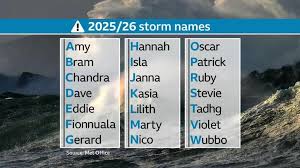 The traumas caused by nine named violent storms, heavy rainfall, high winds, flooding and lots of damage to homes, outbuildings, crops and livestock, evacuations and several deaths have been immense. As we approach Spring, three grand openings have been announced. The traumas caused by nine named violent storms, heavy rainfall, high winds, flooding and lots of damage to homes, outbuildings, crops and livestock, evacuations and several deaths have been immense. As we approach Spring, three grand openings have been announced.
[Image courtesy of the BBC]
***
 Tomorrow Friday, a brand-new venue opens in Montejaque. Tomorrow Friday, a brand-new venue opens in Montejaque.
A former house has been turned into a bar/restaurant, named "La Chica" (meaning "small" in this case, rather than "girl") to be run by two brothers from the village, Ruben and Borja.
A few years before the brothers had La Terraza I and La Terraza II, just outside the village, together with their late pal Cayetano, who sadly died in a cycling accident.
Awaiting photo
***
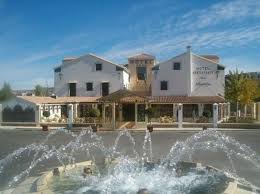 On Saturday the refurbished Ronda Valley Hotel (Don Benito) re-opens as Hotel Don Manuel. The hotel has been closed for two months while new owner David Garcia and his team have given the place a complete makeover. On Saturday the refurbished Ronda Valley Hotel (Don Benito) re-opens as Hotel Don Manuel. The hotel has been closed for two months while new owner David Garcia and his team have given the place a complete makeover.
A completely new colour scheme, new furniture and a re-arrangement of the internal space in the public areas. The bedrooms have been stripped bare and re-done.
[Ronda Today]
Lots of people will be looking forward to 1.00 pm on Saturday.
***
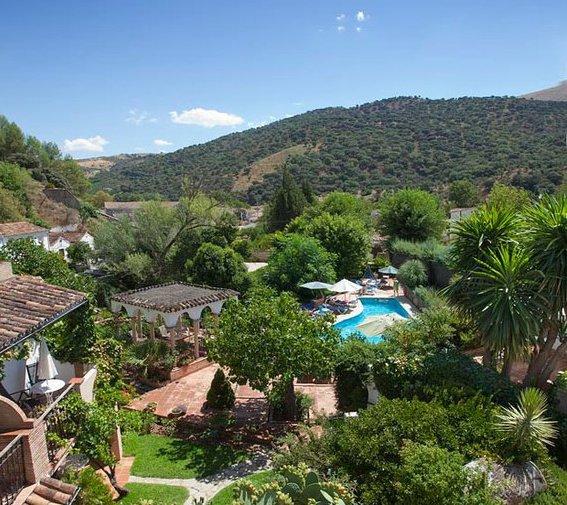 The third grand opening is at at Molino del Santo in Benaojan Estacion. The third grand opening is at at Molino del Santo in Benaojan Estacion.
Their planned opening was for St Valentine's Day, but that was ki-boshed when the barriada was shut down for fear of a flood from the Montejaque dam.
They are already back in action, so it won't be long before the missus and I go there to celebrate something or other.
[Molino del Santo]
As for me, I shall attend the grand openings tomorrow and Saturday and we'll both be off to Molino del Santo soon!
Update 1:
I went to the opening of "La Chica" promptly at 11.00 am. I was the only customer for a while. "Too early", the second customer, a local, told me. "It's only alcoholics like you and me that start drinking so early!"
Mmm!
Back to "La Chica". The name is accurate - it is indeed "small" - but beautifully done with interesting artefacts on the walls.
I decided to book a table for dinner for Rita and me. At 8.00 pm it was already crowded, and it got even busier later. The food was exquisite and the bill was a few cents over 50 euros. Highly recommended.
[awaiting photos]
Update 2:
At the grand opening of the 4-star Hotel Don Manuel, there was a slight delay while the assembled crowd waited for the delegate from Ronda Council who was running late.
After short speeches by the new owners the ribbon was cut and we were welcomed into our familiar local which has been utterly transformed. Lighter colours have made the place seem brighter and more spacious.
With two dining rooms and a large terrace the hotel is set up for family dining and for events, such as weddings, baptisms and confirmations.
The four show bedrooms, each different, were spacious and tastefully designed. Our favourite was Room 105 on the first floor. Ultimately the hotel will offer 24 rooms.
The bar area was packed. It was hot and sunny, so everybody had a thirst. Complimentary tapas were served by the staff and it was all rather jolly.
We looked at the restaurant menu which offered a range of interesting-sounding dishes at reasonable prices. We have booked a table for dinner this evening and are looking forward to it. And nobody has to drive, as we live within walking distance.
BTW, the new hotel is named after owner David's late father, Manuel, who perished in a fire aged 50, when David was a youngster.
[awaiting photos]
© Paul Whitelock
Photos:
BBC, Molino del Santo, Ronda Today
Thanks:
David Garcia, Paul Whitelock
Tags:
Benaojan Estacion, Borja, brand-new venue opens in Montejaque, Cayetano, crops, David Garcia, Don Benito, evacuations, flood from the Montejaque dam, flooding and lots of damage to homes, four deaths, heavy rainfall, high winds, Hotel Don Manuel, "La Chica", La Terraza I, La Terraza II, livestock, Molino del Santo, nine named violent storms, outbuildings, Ronda Valley Hotel, Ruben, St Valentine's Day, three grand openings,
 4
Like
Published at 11:59 PM Comments (0)
4
Like
Published at 11:59 PM Comments (0)
Dead greats!
Wednesday, February 18, 2026
Robert Duvall and Jesse Jackson both died this week, each having left a remarkable legacy in their respective fields of endeavour.
 Robert Duvall passed aged 95 (1931 - 2026), an actor of remarkable skill, who played Tom Hagen, "Il Consiglieri", to Marlon Brando's "Godfather" in two films; a memorable role in "Apocalypse Now"; plus key roles in many other important films of the 1970s and 1980s. Robert Duvall passed aged 95 (1931 - 2026), an actor of remarkable skill, who played Tom Hagen, "Il Consiglieri", to Marlon Brando's "Godfather" in two films; a memorable role in "Apocalypse Now"; plus key roles in many other important films of the 1970s and 1980s.
Nominated five times for a best actor Oscar, he won it once in 1984 for "Tender Mercies".
Duvall with his Oscar [BBC]
Arguably he was short-changed, although he also won a BAFTA, an Emmy and four Golden Globes, as well as other awards.
He first came to prominence as Boo Radley in Harper Lee's "To Kill a Mockingbird", a role in which he did not speak.
In "Apocalypse Now" he spoke the immortal line "I love the smell of napalm in the morning", which will forever be associated with this Californian-born actor.
***
 Rev. Jesse Jackson was 84 (1941 - 2026) when he left us yesterday, Tuesday. A champion of civil rights and human rights, he was a contemporary of Dr. Martin Luther King Jr. Rev. Jesse Jackson was 84 (1941 - 2026) when he left us yesterday, Tuesday. A champion of civil rights and human rights, he was a contemporary of Dr. Martin Luther King Jr.
According to The New York Times Jackson was an impassioned orator, and was a moral and political force, forming a “rainbow coalition” of poor and working-class people and seeking the presidency on two occasions.
Jackson in full flow [La Jornada]
His mission, he said, was “to transform the mind of America".
The lengthy NYT obituary was very negative about Jackson, who was born in South Carolina. On the other hand EL PAIS in English gives him a more favourable death notice.
Jesse Jackson ran for president in both 1984 and 1988, but, despite coming close to getting the presidential nomination in 1988, he never achieved elected office.
Active until 2017 when he became ill with what turned out to be Parkinson's Disease, his legacy was significant.
According to Sky News Jackson became friends with Ronald and Nancy Reagan, Bill and Hillary Clinton, Barack and Michelle Obama and many others.
© Paul Whitelock
Links:
Civil rights leader Jesse Jackson has died, family says | News UK Video News | Sky News
Jesse Jackson, Charismatic Champion of Civil Rights, Dies at 84 - The New York Times
Jesse Jackson, veteran US civil rights activist, dies at 84 | U.S. | EL PAÍS English
Robert Duvall - Wikipedia, la enciclopedia libre
The Truth About Boo Radley - YouTube video
Photos:
BBC, La Jornada
Acknowledgements:
EL PAIS in English, New York Times, Sky News, Wikipedia,
Tags:
"Apocalypse Now", Barack and Michelle Obama, best actor Oscar, Bill and Hillary Clinton, Boo Radley, BAFTA, BBC, champion of civil rights and human rights, Dr. Martin Luther King Jr., EL PAIS in English, Emmy, four Golden Globes, Godfather, Harper Lee, Il Consiglieri, "I love the smell of napalm in the morning", La Jornada, Marlon Brando, New York Times, Parkinson's Disease, “rainbow coalition”, Rev. Jesse Jackson, Robert Duvall, Ronald and Nancy Reagan, Sky News, "Tender Mercies", "To Kill a Mockingbird"
 0
Like
Published at 9:07 PM Comments (0)
0
Like
Published at 9:07 PM Comments (0)
Is Socialism Dead? Think again!
Tuesday, February 10, 2026
 With concerns in many democracies that socialism is on its way out in the face of increasing success in elections of far right parties, it was refreshing that Portugal has shifted firmly to the left of centre in their general election two days ago. With concerns in many democracies that socialism is on its way out in the face of increasing success in elections of far right parties, it was refreshing that Portugal has shifted firmly to the left of centre in their general election two days ago.
Seguro celebrates victory in Portugal [RFI]
With concerns in many European democracies about the rise in popularity of the AfD in Germany, Reform UK, VOX in Spain, Meloni in Italy, Le Pen in France and Trump-ism in the USA, it's refreshing to learn that the socialist party in Portugal achieved its best ever result, sending the right-wing party into oblivion.
So, is Socialism Dead?
Whilst we are at a turning point in world politics, with dictatorships in China, India, North Korea, and Russia calling most of the shots, this is a crucial time for electorates to come to their senses and eschew the far right.
 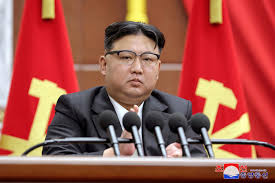
Vladimir Putin [unknown] Kim Jong-Un [El Mundo]
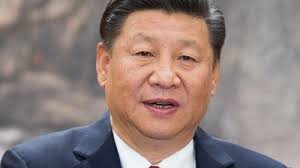 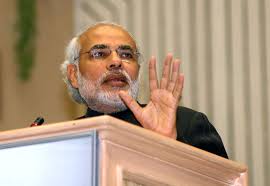
Xi Jinping [Britannica] Narendra Modi [Britannica]
There are widespread fears of a return to Nazism despite the images of the concentration camps, gas chambers and exhumed corpses of World War II ever present on our TV screens as we commemorate the 80 year anniversary of the end of that brutal conflict.
If not, what's next?
There is a bulwark of socialism in Canada, Denmark, France, Ireland, Poland, Scandinavia, Spain, the UK and now Portugal. In addition, socialists have a presence in coalition governments in Germany and the Netherlands.
Whilst Emmanuel Macron, Sir Keir Starmer, and Pedro Sanchez are unpopular in their respective countries and might not last much longer, all three bestride the international stage with aplomb and resolve.
Mark Carney the Liberal Party's prime minister of Canada is an important antidote to the tyranny of Donald Trump.
Links
Centre-left holds off far-right as Seguro wins Portugal's presidential election - RFI
© Paul Whitelock
Photos:
Britannica, El Mundo, RFI
Thanks:
Malaga Hoy, Paul Whitelock, RTVE
Tags:
AfD, Canada, China, coalition governments, concentration camps, Denmark, Emmanuel Macron, exhumed corpses, France, gas chambers, Germany, India, Ireland, Italy, Keir Starmer, Kim Jong-Un, Le Pen, Malaga Hoy, Mark Carney, Meloni, Narendra Modi, nazism, Netherlands, North Korea, Paul Whitelock, Pedro Sanchez, Poland, Portugal, Putin, RTVE, Reform UK, Russia, Scandinavia, Seguro, socialism, Spain, Trump-ism, UK, USA, VOX, World War II, Xi Jinping,
 3
Like
Published at 9:21 AM Comments (7)
3
Like
Published at 9:21 AM Comments (7)
Alice, Harry, Ingrid, Joseph, Kristin, Leonardo, Marta
Monday, February 9, 2026
Who are they? Or what are they? Three names sound English, one German, one Scandinavian, one Italian and one Spanish.
 They are, in fact, the names given to the borrascas (storms) we've suffered in Malaga province this hydrological year (2025/26). SEVEN named storms since October! And that's not counting several other unnamed bad weather events. They are, in fact, the names given to the borrascas (storms) we've suffered in Malaga province this hydrological year (2025/26). SEVEN named storms since October! And that's not counting several other unnamed bad weather events.
[BBC]
And there are still climate change deniers out there! Unbelievable!
When does a storm get given a name?
When it is deemed that a storm is likely to have a significant impact on the population in its path. The aim is to ease tracking, to improve the communication of weather alerts and to avoid confusion when there are several weather events happening at the same time, as now.
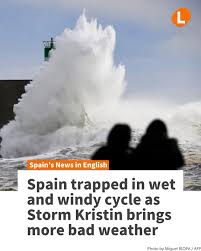 Alice hit us at the beginning of October. Alice hit us at the beginning of October.
Then, it went quiet until January 16th when Harry arrived.
Four days later we felt the wrath of Ingrid, then five days after that Joseph.
Within two days, Kristin came on January 27th.
Eight days later it was the turn of Leonardo and three days after that Marta.
[Facebook]
That was two days ago. Another unnamed storm is due to hit us today.
What damage has been done?
As of this morning three people have died and thousands have been evacuated from their homes. The entire village of Grazalema, just across the border in Cadiz province, has been emptied of people, most of whom have been accommodated in a sports hall in Ronda (Malaga).
Residents of Benaojan Estacion have also been evacuated as a precaution.
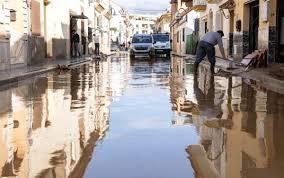 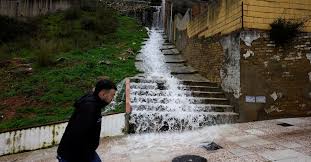
[Euro Weekly News] Flooding in Benaojan [Reuters]
The generosity of companies, bars, restaurants, charities and individuals has been astonishing, with donations of food, drink, clothes and time.
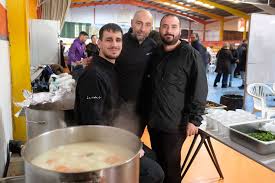 Maripaz Fernandez, the mayoress of Ronda, has allocated emergency council funding; Benito Gomez, the double Michelin-starred chef has set up a kitchen; Solidarios, a local charity, has allocated volunteers and funding. Maripaz Fernandez, the mayoress of Ronda, has allocated emergency council funding; Benito Gomez, the double Michelin-starred chef has set up a kitchen; Solidarios, a local charity, has allocated volunteers and funding.
As one commentator, writing in SUR, the Malaga newspaper, yesterday, put it. There are no Spaniards as generous and supportive as the people of Andalucía.
Benito Gomez and other chefs help out [Malaga Hoy]
Links
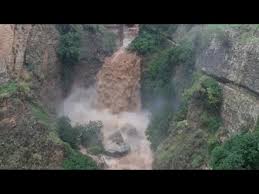 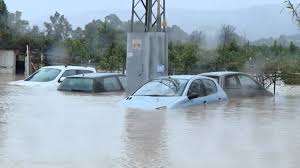
[YouTube] `[Sky News]
© Paul Whitelock
Pictures:
BBC, Diario SUR, Euro Weekly News, Facebook, Karl Smallman, Malaga Hoy, Paul Whitelock, RTVE, Reuters, Ronda Semanal, Sky News, YouTube
Thanks:
Diario SUR, Malaga Hoy, Paul Whitelock, RTVE, Ronda Semanal
Tags:
Alice, Andalucía, Benaojan, Benito Gomez, borrasca, BBC, Cadiz, dam, Diario SUR, embalse, Euro Weekly News, Facebook, Grazalema, Harry, Ingrid, Joseph, Karl Smallman, Kristin, Leonardo, Malaga Hoy, Maripaz Fernandez, Marta, Montejaque, Paul Whitelock, RTVE, Reuters, reservoir, Ronda Semanal, Sky News, Solidarios, storm, YouTube
 0
Like
Published at 10:39 AM Comments (0)
0
Like
Published at 10:39 AM Comments (0)
Today is World Cancer Day - February 4th
Wednesday, February 4, 2026
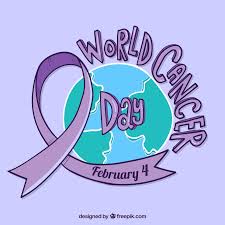 Today is World Cancer Day, an international day observed every February 4th to raise awareness about cancer, encourage its prevention, and mobilise action to address the global cancer epidemic. Today is World Cancer Day, an international day observed every February 4th to raise awareness about cancer, encourage its prevention, and mobilise action to address the global cancer epidemic.
The day is led by the Union for International Cancer Control (UICC) and was established in the year 2000.
[poster by Freepik]
Aims of the organisation
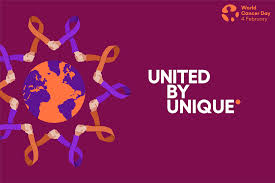 By catalysing personal, collective and government action, they are all working together to reimagine a world where millions of cancer deaths are prevented and access to life-saving cancer treatment and care is equitable for all no matter who they are nor where they live. By catalysing personal, collective and government action, they are all working together to reimagine a world where millions of cancer deaths are prevented and access to life-saving cancer treatment and care is equitable for all no matter who they are nor where they live.
[Our Cancer Stories]
Each year, hundreds of activities and events take place around the world, gathering communities, organisations and individuals in schools, businesses, hospitals, marketplaces, parks, community halls, places of worship - in the streets and online - acting as a powerful reminder that everybody has a role to play in reducing the global impact of cancer.
Impact in 2024
27k+ press articles in 159 countries
900+ activities and events in 127 countries
500k+ social media mentions
How does the organisation work?
UICC runs World Cancer Day campaigns in three-year cycles to allow for a deeper exploration of a particular theme and achieve greater impact.
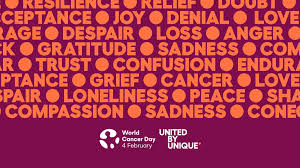 The World Cancer Day theme 2025-2027, “United by Unique” places people at the centre of care and explores new ways of making a difference. The World Cancer Day theme 2025-2027, “United by Unique” places people at the centre of care and explores new ways of making a difference.
Cancer is more than just a medical diagnosis — it’s a deeply personal matter. Behind every diagnosis lies a unique human story - stories of grief, pain, healing, resilience, love and more.
[UICC]
That’s why a people-centred approach to cancer care that fully integrates each individual’s unique needs, with compassion and empathy, leads to the best health outcomes.
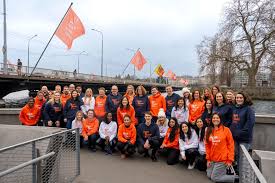 Every experience with cancer is unique and it will take all of us, united, to create a world where we look beyond the disease and see the person before the patient. Every experience with cancer is unique and it will take all of us, united, to create a world where we look beyond the disease and see the person before the patient.
A world where the needs of people and communities are at the centre of health systems.
World Cancer Day activity [UICC]
The World Cancer Day theme 2025-2027, “United by Unique”, .....
..... places people at the centre of care and explores new ways of making a difference.
That’s why a people-centred approach to cancer care that fully integrates each individual’s unique needs, with compassion and empathy, leads to the best health outcomes.
© Paul Whitelock
With thanks to:
El Periodico, RNE, TVE1, “United by Unique”, UICC, worldcancerday.org
Pictures:
Freepik, Our Cancer Stories, UICC
Tags:
cancer, El Periodico, Freepik, grief, healing, love, Our Cancer Stories, pain, RNE, resilience, TVE1, “United by Unique”, UICC, worldcancerday.org
 0
Like
Published at 10:11 PM Comments (0)
0
Like
Published at 10:11 PM Comments (0)
Ronda, Benaojan and Grazalema hit the National News
Wednesday, February 4, 2026
Yes, these towns in the Serrania de Ronda and the Sierra de Grazalema have hit the headlines! Blanket coverage on national TV, online and in the national Press. For all the wrong reasons!
Because of the extreme weather coming in from the West, principally Storm Leonardo, red and orange alerts have been issued for Cadiz, Extremadura and parts of Andalucia. All schools are closed, except in Almeria province. Many supermarkets are shut and other places are expected to suspend their services.
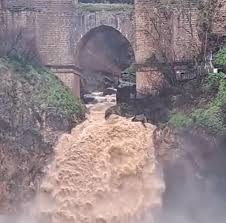 Three hotels near us are underwater, residents have been evacuated from their homes in the Guadiaro Valley, and countless roads have been blocked by flood water. Three hotels near us are underwater, residents have been evacuated from their homes in the Guadiaro Valley, and countless roads have been blocked by flood water.
On TV, President of the Andalucía regional government Juanma Moreno (PP), warned against travelling by car unless absolutely necessary.
Ronda today [La Opinion de Malaga]
Our personal story
Rita was due to fly to Germany today from Malaga Airport. Imagine our shock when we received weather alerts on our mobile phones last night warning us of the severe situation. Extensive research online indicated that the worst of the weather was from breakfast time onwards.
 After considering several options Rita decided she would set off early alone and park at the airport. Accordingly she left at 06.30 in pouring rain for her 10.15 flight. She made good time, even managing to stop for a coffee on the Churriana road. After considering several options Rita decided she would set off early alone and park at the airport. Accordingly she left at 06.30 in pouring rain for her 10.15 flight. She made good time, even managing to stop for a coffee on the Churriana road.
I booked her in at our regular car park service and Rita was at the airport before check-in opened!
[The Olive Press]
Everything went smoothly after that. Her flight departed 17 minutes late, but she is at least on her way to the snow and ice of south-west Germany.
Rita landed safe and sound a short while ago.
Back at the ranch
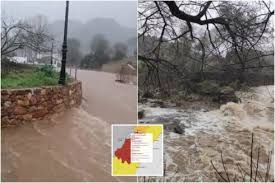 It's been pouring down non-stop. Daylight revealed that we now have a villa by a lake - our garden. Many might regard us as fortunate; indeed houses by lakes in countries like Denmark, Germany, the Netherlands, Norway and the UK (eg The Lake District, Scotland, Wales) fetch a premium when sold. It's been pouring down non-stop. Daylight revealed that we now have a villa by a lake - our garden. Many might regard us as fortunate; indeed houses by lakes in countries like Denmark, Germany, the Netherlands, Norway and the UK (eg The Lake District, Scotland, Wales) fetch a premium when sold.
However, since our lake is unintended and potentially damaging to our property (foundations, indoor flooding, rising damp) the opposite is the case.
Flooding in Ronda [The Olive Press]
What next?
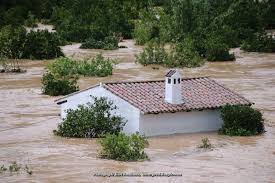 Insurance and consorcio claims. I reckon the CCS will take over all of our claims for damage. Insurance and consorcio claims. I reckon the CCS will take over all of our claims for damage.
Starting with the damage caused by last Thursday's storms and now whatever happens over the next few days on top. Could be a big bill!
Flooding in Jimera de la Fra. [Euro Weekly News]
Update:
I ventured out in the car around midday to get some live photos, but soon returned home. It was looking far too dangerous to go any further (subsequently confirmed by live TV coverage of the affected areas). Here is a selection of photos I took in Fuente de la Higuera, where I live (in a villa by a lake!):
 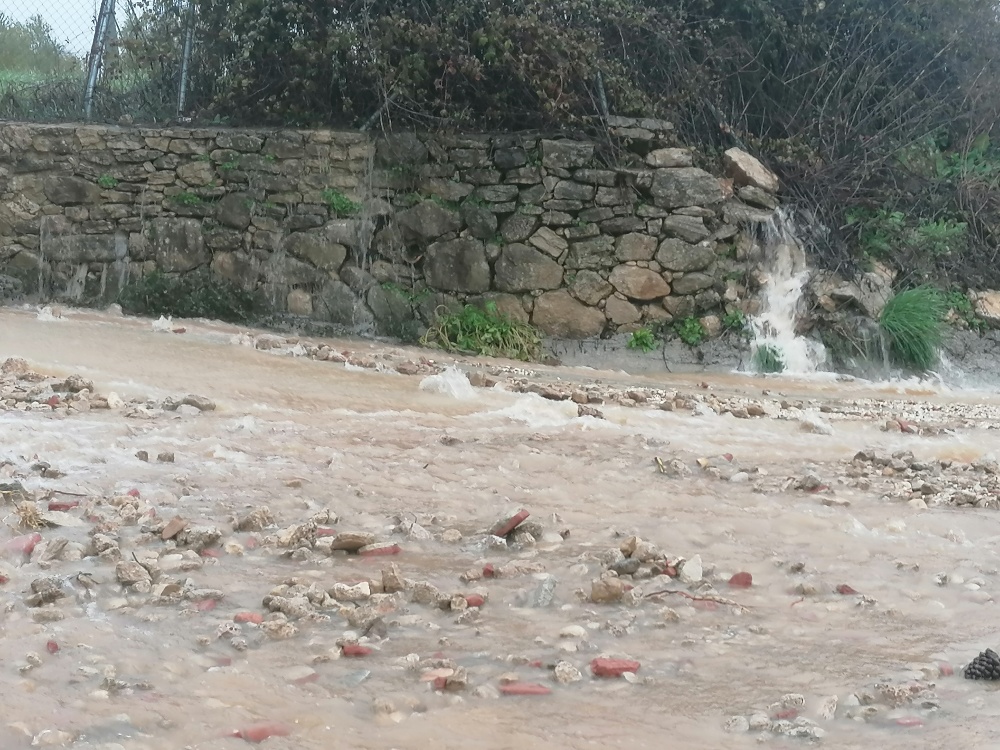 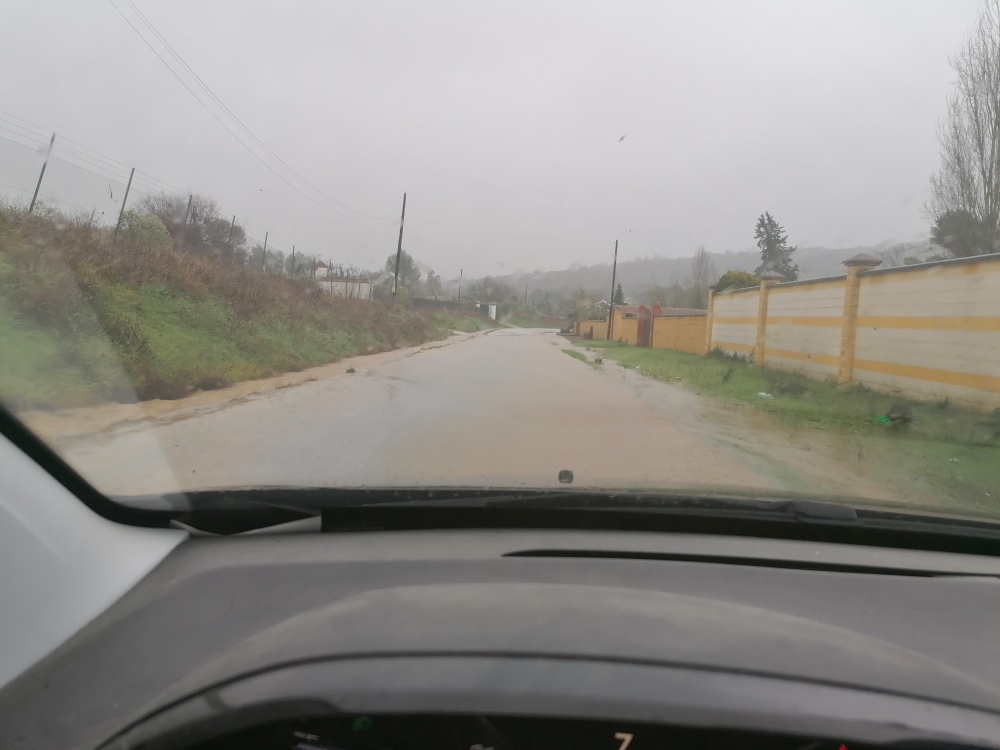
 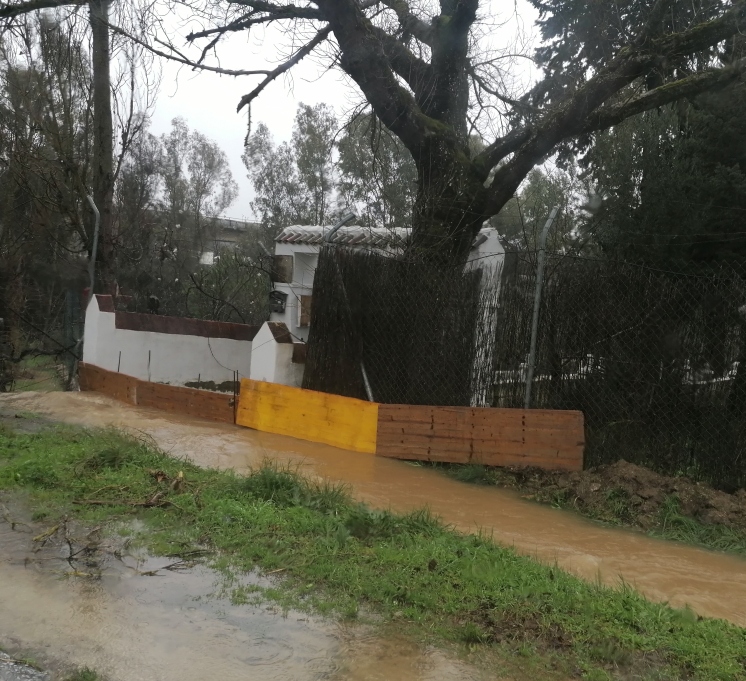 
Links
"Here Comes the Rain Again!" - again! - Eye on Spain
Here Comes the Rain Again (Remastered Version) - song by The Eurythmics (YouTube)
HOW TO ..... make a claim for FLOOD DAMAGE? - Eye on Spain
The rain in Spain... - Secret Serrania
© Paul Whitelock
Pictures:
Euro Weekly News, Karl Smallman, La Opinion de Malaga, Paul Whitelock, The Olive Press
Thanks:
Paul Whitelock, www.eyeonspain.com, www.secretserrania.com
Tags:
Benaojan, claims, consorcio, CCS, Denmark, Euro Weekly News, Eurythmics, Eye on Spain, flood damage, foundations, Germany, Grazalema, "Here Comes the Rain Again!", indoor flooding, insurance, Karl Smallman, Lake District, La Opinion de Malaga, National News, Netherlands, Norway, Paul Whitelock, rising damp, Ronda, Scotland, Secret Serrania, The Olive Press, UK, Wales, weather alerts
 4
Like
Published at 2:09 PM Comments (4)
4
Like
Published at 2:09 PM Comments (4)
Trump is a WAR CRIMINAL - Official!
Monday, January 5, 2026
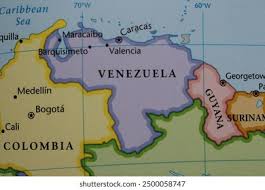 Donald J Trump's invasion of Venezuela on Saturday 3rd January 2026, the arrest and abduction of Nicolas Maduro, that country's prime minister and his incarceration in a top security prison in New York, have been roundly condemned by most of the rest of the world. Donald J Trump's invasion of Venezuela on Saturday 3rd January 2026, the arrest and abduction of Nicolas Maduro, that country's prime minister and his incarceration in a top security prison in New York, have been roundly condemned by most of the rest of the world.
From Antonio Guterres, Emmanuel Macron, Friedrich Merz, Keir Starmer, Pedro Sanchez, Pope Leo XIV, Ursula van der Leyen and others, even Russia and China, the reaction has been loud and clear - condemnation.
Background
 The US president has ordered the interception of suspected narcolanchas off the coast of Venezuela for some weeks. Several boats have been sunk, others boarded and taken, resulting in a number of deaths. The US president has ordered the interception of suspected narcolanchas off the coast of Venezuela for some weeks. Several boats have been sunk, others boarded and taken, resulting in a number of deaths.
The Orange One has been threatening to invade Venezuela for a while; now he's done it. This despite pleas from Maduro for talks to calm things down.
una narcolancha [EL PAIS]
Has Trump (79) lost his marbles? Is this behaviour going to win him the Nobel Peace Prize in 2026? I think not.
 US soldiers attacked several Venezuelan military bases while the Special Forces - in a very slick professional operation - managed to capture the president of that country and his wife Cilia and take them to a detention centre in up-state New York. The Pentagon said that Maduro will be tried for criminal offences. The attacks on Venezuela would cease immediately. US soldiers attacked several Venezuelan military bases while the Special Forces - in a very slick professional operation - managed to capture the president of that country and his wife Cilia and take them to a detention centre in up-state New York. The Pentagon said that Maduro will be tried for criminal offences. The attacks on Venezuela would cease immediately.
[Video courtesy of La Sexta]
There were demonstrations against American imperialism in a number of cities throughout the USA and in Europe, where exiled venezolanos turned out in force in Paris, Barcelona and Bilbao. Pleased that Maduro is apparently gone, they did not approve of Trump's methods.
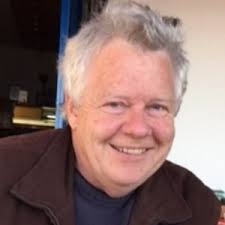 Lenox Napier, a Britsh-born journalist and blogger long resident in Andalucia, remarked: "The whole enterprise was a bit similar to Putin’s 2022 attack on Ukraine, the buildup of forces on the frontier and so on, but evidently turned out to be rather more successful". Lenox Napier, a Britsh-born journalist and blogger long resident in Andalucia, remarked: "The whole enterprise was a bit similar to Putin’s 2022 attack on Ukraine, the buildup of forces on the frontier and so on, but evidently turned out to be rather more successful".
Napier went on to speculate: "Will China feel that it’s their turn now with Taiwan? We shall see".
Lenox Napier [Almeria Hoy]
Spain’s reaction to this remarkable coup understandably varied acccording to which party you represent. President Sánchez (PSOE) called for a de-escalation: “Both International law and the principles of the Charter of the United Nations must be respected”.
Sánchez, in line with the EU, avoided expressly condemning the US operation, yet coalition partner Sumar denounced the attacks against Venezuela as “imperialist aggression".
Alberto Núñez Feijóo (PP), out of touch as usual, was insisting on a quick transition led by Edmundo González (the doddery old Venezuelan politician who lives in exile in Madrid).
The ex-Podemos leader Pablo Iglesias didn't mince his words: "They're bombing to steal their oil and impose a puppet government."
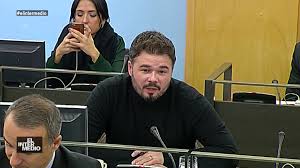 Gabriel Rufián (ERC spokesperson) said: Gabriel Rufián (ERC spokesperson) said:
"Bombing another country is not war, it's aggression, and detaining the President of that country is not an arrest, it's a kidnapping."
[Gabriel Rufian video by La Sexta]
We learned from El Mundo that Maduro will be tried for "narcoterrorism and possessing destructive arms against the USA".
News agency Reuters posted: "The Russian Foreign Ministry called the US strike on Venezuela 'deeply concerning and condemnable'.
Argentina’s President Milei, true to form, opined: "Freedom moves forward, hooray for freedom, Goddammit’.
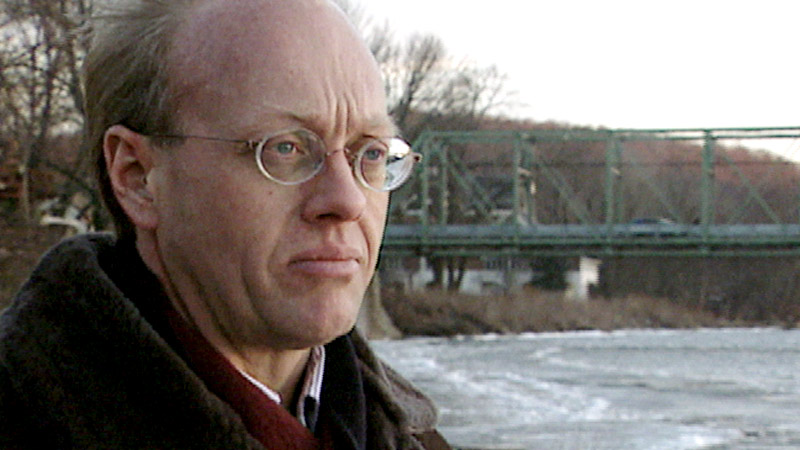 The pundit Chris Hedges wrote: "The kidnapping of Venezuelan president Nicolas Maduro and his wife solidifies America’s role as a gangster state. Violence does not generate peace. It generates violence. The immolation of international and humanitarian law, as the US and Israel have done in Gaza, and as took place in Caracas, generates a world without laws, a world of failed states, warlords, rouge imperial powers and perpetual violence and chaos…" The pundit Chris Hedges wrote: "The kidnapping of Venezuelan president Nicolas Maduro and his wife solidifies America’s role as a gangster state. Violence does not generate peace. It generates violence. The immolation of international and humanitarian law, as the US and Israel have done in Gaza, and as took place in Caracas, generates a world without laws, a world of failed states, warlords, rouge imperial powers and perpetual violence and chaos…"
[Chris Hedges courtesy of PBS]
The American vice-president JD Vance (41) tweeted: “The president offered multiple off-ramps, but was very clear throughout this process: the drug trafficking must stop, and the stolen oil must be returned to the United States. Maduro is the newest person to find out that President Trump means what he says."
What else has happened?
Around 600,000 Venezuelans live in exile in Spain, on the coasts and in other tourist areas. Many wealthier folk have infiltrated the smartest barrios in Madrid, where, having managed to get their money out of Caracas, they have invested in real-estate.
We saw on the TV news that a large Venezuelan celebration was held in Madrid on Saturday afternoon "supported by both the PP and Vox".
One anonymous demonstrator told reporters: "I thought the Americans would solve this in a day at most, but if it's true that they captured Maduro in just three hours... that's a whole different ballgame".
 In a live speech, more a "babbling monologue", which strayed off-topic a number of times, Trump told reporters and the watching TV audience on Saturday afternoon (CET) that the invasion of Venezuela was " ..... an assault not seen since World War II". In a live speech, more a "babbling monologue", which strayed off-topic a number of times, Trump told reporters and the watching TV audience on Saturday afternoon (CET) that the invasion of Venezuela was " ..... an assault not seen since World War II".
“They took our oil infrastructure. We never had a president who did anything about it”, he told us, with a clear jibe at former president Joe Biden.
[Red Bubble]
“We are going to run the country until the arrival of a proper turnover of power”, he said.
“The oil business – we’re going to have our large American companies fix the infrastructure, and we are ready for a second, much larger attack if necessary”.
Did Secretary of State Marco Rubio (54) standing beside him look faintly embarrassed?
“National security, just like tariffs – make our country rich”, Trump continued.
“A year ago, we were a dead country, no longer”, said Trump, unerringly alienating half of the American population once again.
Following Trump's speech, we heard from his senior advisers.
Secretary of State Marco Rubio (54) warned: "Don’t play games with this president, because it won’t turn out well".
Defence Secretary Pete Hegseth (45) "bigged up" the US troops: "We showed guts, grit, gallantry and glory", said in an alliterative moment (Napier).
The BBC dubbed the event: "A rather extraordinary press briefing".
The Guardian covered the Mar-a-Lago speeches here.
Footnote:
Trump, Rubio and Hegseth were born under the star sign Gemini, so are literally "two-faced".
 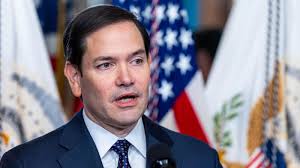 
Trump [BBC] Marco Rubio [La Sexta ] Pete Hegseth [CNN en español]
Vance is a Leo ("Confident and creative, attention-seeking"). Although I don't believe in "The Stars", does this make it likely that if Trump does what the Law says and stands down at the end of his current second term as president, JD Vance will be the next Republican presidential candidate?
And then the 48th president of the USA?
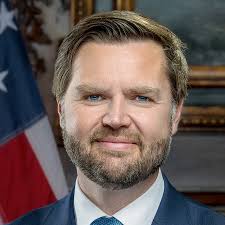
JD Vance [Photo courtesy of The White House]
Surely even the US voters couldn't be that stupid again ..... Or could they?
Back to Venezuela
The exiled official opposition leader (and Nobel Peace Prize winner) Maria Corina Machado, speaking from an undisclosed site, said: “The time of freedom has arrived, and we are ready to take power”.
However, 20Minutos reports that Trump has ruled out María Corina Machado to lead Venezuela: "She doesn't have the internal support or the respect of the country".
Instead, Trump has chosen Maduro’s vice-president Delcy Rodríguez to take over.
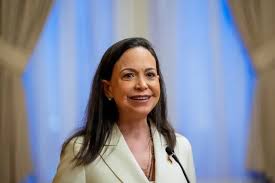 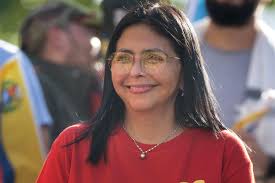
Maria Corina Machado [BBC] Delcy Rodriguez [Cadena SER]
  From "The Other 98%", we are told: From "The Other 98%", we are told:
"Let’s strip away the euphemisms: this is invasion, not enforcement.
There was no imminent threat to American soil that justified the use of force under international law.
Venezuela sits on some of the largest proven oil reserves in the world, and its economic and geopolitical position has long made it a target of U.S. political and economic pressure".
[PolitiFact]
Later
A few other reactions:
The Venezuelan Attorney General condemned the "cowardly imperial attack"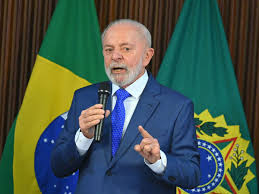 against civilians in Venezuela. He also demanded the release of President Nicolás Maduro and his wife. against civilians in Venezuela. He also demanded the release of President Nicolás Maduro and his wife.
Brazil's president Lula da Silva denounces the "unacceptable" US attack and the capture of Maduro and warns that it paves the way for a world where "the law of the strongest" prevails.
[El Confidencial]
A Chinese Foreign Ministry spokesperson on Saturday said China is deeply shocked by and strongly condemns the US' blatant use of force against a sovereign state and action against its president.
The far-right French politician Marine Le Pen criticises the US attack on Venezuela.
Finally, Trump issues a stark warning to Colombia's Gustavo Petro: he asserts that Petro will be the next US target after Maduro.
© Paul Whitelock
Abbreviations used:
BBC - British Broadcasting Corporation
CNN - Cable News Network
CET - Central European Time
ERC - Esquerra Republicana de Catalunya
EU - European Union
MSN - Microsoft News
PP - Partido Popular
PSOE - Partido Soialista de Obreros Españoles
PBS - Public Broadcasting Service
UK - United Kingdom
US - United States
USA - United States of America
Sources:
ABC, BBC, El Mundo, Lenox Napier, MSN, Paul Whitelock, SKY News, The Huffington Post
Pictures:
Almeria Hoy, BBC, CNN en español, Cadena SER, El Confidencial, La Sexta, PBS, PolitiFact, Red Bubble, Shutterstock
Tags:
Alberto Núñez Feijóo, Almeria Hoy, Antonio Guterres, ABC, BBC, CNN en español, Cadena SER, CET, Chris Hedges, Delcy Rodriguez, Edmundo González, El Confidencial, El Mundo, Emmanuel Macron, ERC, EU, Friedrich Merz, Gabriel Rufián, Gustavo Petro, JD Vance, Keir Starmer, La Sexta, Lenox Napier, Lula da Silva, Marco Rubio, Pete Hegseth, Maria Corina Machado, Marine Le Pen, MSN, Nicolas Maduro, Pablo Iglesias, PP, PSOE, Paul Whitelock, Pedro Sanchez, PBS, Podemos, PolitiFact, Pope Leo XIV, Red Bubble, Shutterstock, SKY News, Sumar, The Huffington Post, US, USA, Ursula van der Leyen
 0
Like
Published at 11:06 AM Comments (0)
0
Like
Published at 11:06 AM Comments (0)
New Rules of the Road
Friday, January 2, 2026
 Since yesterday, 1st January 2026, there are some significant adjustments to the Spanish equivalent of The Highway Code. Since yesterday, 1st January 2026, there are some significant adjustments to the Spanish equivalent of The Highway Code.
The most important changes are:
1. Everybody travelling in a vehicle must wear a seatbelt, including taxi drivers, delivery drivers, driving instructors and pregnant mothers all of whom were previously exempt.
2. In the event of an emergency, warning triangles are OUT and V16 beacons are IN. But not the type we were encouraged to buy for the last couple of years. The DGT has changed the requirement at the 11th hour.
[Image courtesy of N332]
The beacons now have to be homologised and contain a chip to indicate to the rescue services via GPS where the breakdown has occurred.
A great idea to be sure, but why so last-minute when many of us had already bought a non-clever-dick-version?

And, by the way, what was wrong with triangles in any case?
Pedro, you're beginning to get on this socialist's nerves!
[N332]
© Paul Whitelock
Sources:
DGT, SUR in English, The Olive Press, Wikipedia
Pix:
N332
Tags:
beacon, DGT, N332, SUR in English, The Olive Press, V16, Wikipedia
 0
Like
Published at 11:59 PM Comments (0)
0
Like
Published at 11:59 PM Comments (0)
"The Great Escape"
Friday, December 19, 2025
Not the great wartime film thriller starring Steve McQueen, but the day when the Spanish "break up" for Christmas and head off somewhere for the whole Yuletide season.

"The Great Escape" [Netflix]
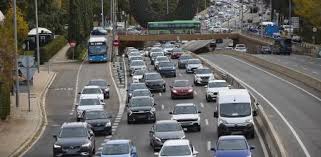 Today is the day when the Christmas holidays begin for many Spaniards. Many workers will finish work early, rush home, pick up the family and the luggage and head off to the coast, the mountains, the airport to start what could be nearly three weeks holiday. Today is the day when the Christmas holidays begin for many Spaniards. Many workers will finish work early, rush home, pick up the family and the luggage and head off to the coast, the mountains, the airport to start what could be nearly three weeks holiday.
Traffic jams start later today [La Vanguardia]
The DGT predicts 22.5 million traffic movements during this holiday period.
Strictly speaking schools break up on Monday, 22nd December, the same day as the winning lottery tickets in "El Gordo" are drawn, but in reality, this year, today is the last day of term.
What implications does this have for normal life?
Well, if you have bureaucratic matters to deal with, you can forget them until the New Year.
Lots of offices and companies will also shut down.
Productivity will plummet, although spending in shops and online should rocket.
[Instagram]
Spaniards who are have fulltime jobs will have money to spend. Many receive 14 monthly payments in a year - they get two months salary in August for their summer holidays, and two in December to pay for presents, meals out, trips, etc, over the Christmas/New Year/Epiphany period.
So, what's on?
22nd December - "El Gordo"
24th December - Noche Buena (Christmas Eve)
25th December - Dia de Navidad (Christmas Day)
26th December - normal working day in Spain
 28th December - Dia de Los Inocentes - recalls Herod's murdering of all new-born male babies in an attempt to kill the Messiah, Jesus Christ. 28th December - Dia de Los Inocentes - recalls Herod's murdering of all new-born male babies in an attempt to kill the Messiah, Jesus Christ.
Curiously this day is a day for tricks and messing about - a bit like April Fool's Day in the UK and the USA.
[Vivir Experiencias]
 31st December - Noche Vieja (New Year's Eve). 31st December - Noche Vieja (New Year's Eve).
The tradition of eating twelve grapes while the clock chimes midnight, making secret wishes for the following year.
This is followed by fireworks and sometimes bonfires.
People stay up late on this day.
1st January - Año Nuevo (New Year's Day)
[Spain.info]
6th January - Dia de Reyes (Epiphany)
 Commemorates the Three Wise Men bearing gifts coming to visit Baby Jesus. Commemorates the Three Wise Men bearing gifts coming to visit Baby Jesus.
This is the day when Spanish children receive their main, and most expensive, presents.
[Instagram]
7th January - Schools re-open and adults go back to work.
***
In many villages, towns and cities there are other activities also: Christmas markets, pantomimes, children's activities, adult theatre, musical events, art exhibitions, food stalls and parades.
***
Final comment
The Spanish love their fiestas and this is one of the biggest, along with Easter. The difference in attitude to life between the British and the Spanish can be summed up by the saying:
"El ingles vive para trabajar, mientras el español trabaja para vivir." ("The English live in order to work; the Spanish work in order to live.")
© Paul Whitelock
Images:
Instagram, La Vanguardia, Netflix, Spain.info, Vivir Experiencias, YouTube
Thanks:
Paul Whitelock, Wikipedia,
Tags:
Año Nuevo, April Fool's Day, Christmas Day, Christmas Eve, Dia de Los Inocentes, Dia de Navidad, Dia de Reyes, DGT, "El Gordo", Epiphany, Herod, Instagram, Jesus Christ, La Vanguardia, Messiah, Netflix, New Year's Day, New Year's Eve, Noche Buena, Noche Vieja, Paul Whitelock, Spain.info, Steve McQueen, "The Great Escape", Three Wise Men, twelve grapes, Vivir Experiencias, Wikipedia, YouTube
 0
Like
Published at 1:41 PM Comments (0)
0
Like
Published at 1:41 PM Comments (0)
Good News! Ronda Valley Hotel to re-open soon!
Sunday, December 7, 2025
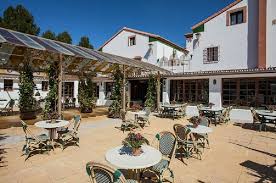 The Ronda Valley Hotel (known to us locals as the Hotel Don Benito) shut suddenly the other day without notice. Nobody seemed to know why. We knew it was going to close on January 15th for reasons which weren't quite clear, but why all of a sudden in early December? Something must be afoot ….. The Ronda Valley Hotel (known to us locals as the Hotel Don Benito) shut suddenly the other day without notice. Nobody seemed to know why. We knew it was going to close on January 15th for reasons which weren't quite clear, but why all of a sudden in early December? Something must be afoot …..
[Atrapalo]
What's going on?
Rumours abounded:
 the current tenants' lease had been cancelled unilaterally; the current tenants' lease had been cancelled unilaterally; - the lease was up for grabs;
- the hotel was for sale;
- the kitchen had failed its hygiene check;
- the building had been condemned and it was to be demolished.
[OTYPO]
For many locals, Spanish and foreign alike, this was a disaster. We had been spending time and money there for years, and now ….. ? What would we do? Where would we go?
Other hostelries nearby don't currently fit the bill.
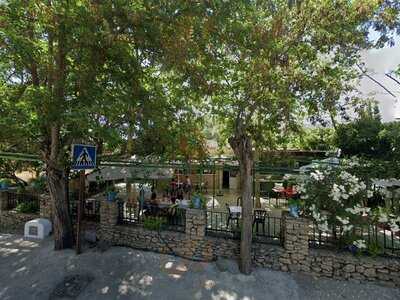 Hotel Molino del Puente is shut for three months. Hotel Molino del Puente is shut for three months. - Hotel Perla Blanca - we don't even know if it's functioning at the moment.
- Venta El Puente only opens half the week.
- Venta La Vega only does breakfast and lunch and shuts on Thursdays.
- Venta El Polvorilla only serves breakfast and lunch.
- Venta El Pelistre isn't always open either.
- Hotel Molino del Arco is only open for residents.
El Polvorilla [www.sluurpy.es]
And next?
If my informant is telling the truth (I think he is - he's the new owner!)
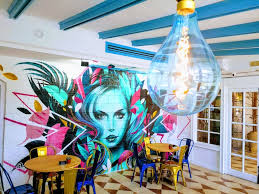 Anyway, I know what's happening, from the horse's mouth, so to speak. Anyway, I know what's happening, from the horse's mouth, so to speak.
The new owner, DG, has already been to the notary and the hotel is his from December 15th.
He wants to do some work, but hopes to open before Christmas, in order to benefit from hotel room bookings, bar takings, tapas and meals, etc.
Mural in the public bar [Expedia]
DG intends to visit local homes and businesses to introduce himself and to invite the locals to the grand re-opening night to enjoy free drinks and tapas.
I look forward to that.
Action Plan for the Don Benito
I had a few ideas about what could be done to improve the "offer", which I discussed with DG. He agrees.
 give the bedrooms a makeover. They are a bit dated, basic and shabby. Once the renovation is completed the hotel could "up" its prices. 30 € a night for a double room off-season is way too cheap. give the bedrooms a makeover. They are a bit dated, basic and shabby. Once the renovation is completed the hotel could "up" its prices. 30 € a night for a double room off-season is way too cheap.
[Central de Reservas]
 adjust the horario of the restaurant. 7.00 - 10.30 would be welcomed by the very many hotel guests from Northern Europe, USA and Canada. adjust the horario of the restaurant. 7.00 - 10.30 would be welcomed by the very many hotel guests from Northern Europe, USA and Canada.- introduce tapas at the bar.
- hold a monthly live music event on the terrace or in the function room.
[Instagram]
In the meantime ..... ?
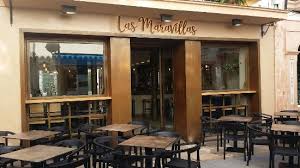 On Thursday night Rita and I tried out the new Las Maravillas in Ronda. On Thursday night Rita and I tried out the new Las Maravillas in Ronda.
Just as good, if not better than the larger and original version on Calle La Bola.
The original Las Maravillas [Trip Advisor]
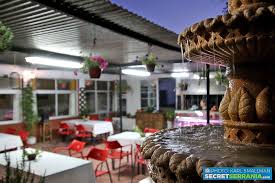 The next couple of nights I went to Venta El Puente. The next couple of nights I went to Venta El Puente.
On Friday night, the whole crowd from the Ronda Valley Hotel was there.
Last night I sat with Liz and Rob and their two-year-old little girl. Hadn't seen them for a while, so we had a good catch-up.
[Photo by Karl Smallman]
Tonight, Sunday, I'm going to stay in.
As for the RVH, or the Don Benito, or whatever it will be called in the future, I await its re-opening with bated breath .....
Links:
Another - new – Ronda Valley
"HOW GREEN WAS MY VALLEY" - Help me, Ronda
Only Joe King
Ronda, Happiest Town in Spain - Help me, Ronda
Ronda Valley Hotel to close? F**k! - Help me, Ronda
© Paul Whitelock
Pictures:
Atrapalo, Central de Reservas, Expedia, Instagram, Karl Smallman, OTYPO, Secret Serrania, Trip Advisor, www.sluurpy.es
Thanks:
David Garcia, Las Maravillas, Paul Whitelock, Venta El Puente
Tags:
Atrapalo, bar takings, Central de Reservas, Expedia, Hotel Don Benito, Hotel Molino del Arco, Hotel Molino del Puente, Hotel Perla Blanca, Instagram, Karl Smallman, meals, Only Joe King, open before Christmas, OTYPO, Paul Whitelock, Ronda Valley Hotel, room bookings, Secret Serrania, tapas, Trip Advisor, Venta El Pelistre, Venta El Polvorilla, Venta El Puente, Venta La Vega, www.sluurpy.es
 3
Like
Published at 10:15 PM Comments (1)
3
Like
Published at 10:15 PM Comments (1)
Spam post or Abuse? Please let us know
|
|